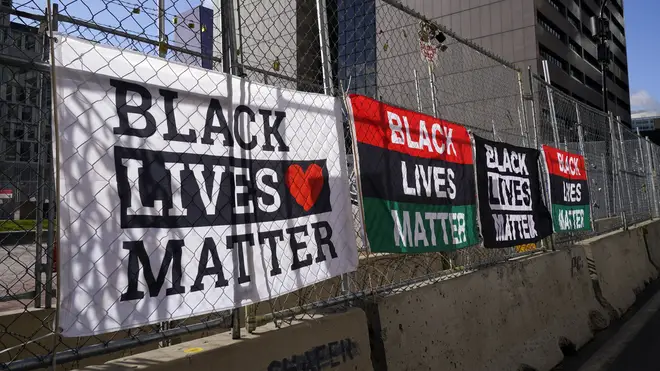
Shelagh Fogarty 1pm - 4pm
9 April 2021, 20:14

Dr Baker, the Hennepin County medical examiner, concluded last year that Mr Floyd died from cardiopulmonary arrest.
The chief county medical examiner who ruled George Floyd’s death was a homicide has taken the stand for former police officer Derek Chauvin’s murder trial.
Dr Andrew Baker said he did not watch the harrowing video of the arrest before examining Mr Floyd, so that he would not be biased by what he saw.
“I was aware that at least one video had gone viral on the internet, but I intentionally chose not to look at that until I had examined Mr Floyd,” said Dr Baker.
“I did not want to bias my exam by going in with any preconceived notions that might lead me down one pathway or another.”
Dr Baker, the Hennepin County medical examiner, concluded last year that Mr Floyd died from cardiopulmonary arrest — his heart stopped — complicated by the way police restrained him and compressed his neck as the 46-year-old lay on the pavement last May.
Another medical expert on Friday blamed Mr Floyd’s death on the way police held him down, as Chauvin’s attorney pressed the witness with hypothetical questions and other means to suggest that Mr Floyd’s drug use or heart disease killed him.
The testimony of Dr Lindsey Thomas, a forensic pathologist who retired in 2017 from the Hennepin County Medical Examiner’s Office, bolstered the findings of other prosecution experts who have taken the stand at Chauvin’s murder trial.
Dr Thomas, who did not work on Mr Floyd’s case, said the “primary mechanism of death” was asphyxia, or insufficient oxygen — a conclusion she said she reached mostly from video that showed Mr Floyd struggling to breathe as Chauvin knelt on his neck and two other Minneapolis police officers helped hold him down.
“This is a death where both the heart and lungs stopped working. The point is, it’s due to law enforcement subdual, restraint and compression,” Dr Thomas said.

The autopsy itself ruled out heart attack, aneurysm and other causes, and Dr Thomas said it was not a drug overdose death, either.
“There is no evidence to suggest he would have died that night except for the interactions with law enforcement,” she testified.
Dr Thomas said she agreed with Dr Baker’s findings, but she went further in specifying Mr Floyd died of asphyxia. She said that there was nothing in Mr Floyd’s autopsy that noted that, but she said that is not uncommon.
Chauvin, 45, is charged with murder and manslaughter in Mr Floyd’s death on May 25.
Mr Floyd was arrested outside a neighbourhood market after being accused of trying to pass a counterfeit 20 dollar bill.
Bystander video of Mr Floyd crying that he could not breathe as onlookers yelled at the officer to get off him sparked protests and scattered violence around the US.
Chauvin attorney Eric Nelson has argued that the now-fired officer did what he was trained to do and was not responsible for Mr Floyd’s death.
Mr Floyd had high blood pressure and heart disease, and an autopsy found fentanyl and methamphetamine in his system.